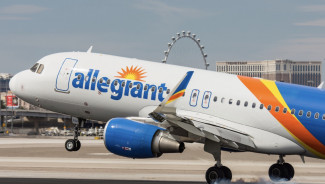Age 60 Rule - Where Is It Now?
At the beginning of the 109th Congress, 4 Jan 2005, Rep. Jim Gibbons (R-NV) sponsored HR 65. HR 65 was then referred to the House Committee on Transportation and Infrastructure, chaired by Rep. Don Young (R-AK). The next day, 5 Jan 2005, HR 65 was referred to the House Subcommittee on Aviation (a subcommittee of the House Committee on Transportation), chaired by Rep. John Mica (R-FL). No action has been taken by the Subcommittee on Aviation, nor did they have any hearings on HR 65. The result is that HR 65, as with most bills, died in subcommittee when the 109th Congress adjourned in the early morning of Saturday, 9 Dec 2006.
In the Senate, Sen. James Inhofe (R-OK) sponsored HR 65Â?s companion bill, S 65 on 24 Jan 2005 which was referred to the Senate Committee on Commerce, Science and Transportation, chaired by Sen. Ted Stevens (R-AK). On 19 July 2005, the Senate Subcommittee on Aviation, chaired by Sen. Conrad Burns (R-MT), held a hearing on the FAA Age 60 Rule. Representatives from the FAA, Aerospace Medical Association, Air Line Pilots Association, Southwest Airlines Pilot's Association, Allied Pilots Association, and JetBlue Airways Corporation testified about the issues regarding the mandatory retirement age for airline pilots. On 17 Nov 2005, the text of S 65 was amended to comply with the proposed ICAO change, which went into effect on 23 Nov 06. On 30 Mar 06, Sen. Stevens reported the amended S 65 out of committee and it was placed on the Senate Legislative Calendar under General Orders No. 382. Once a bill is placed on the Senate Calendar, it is up to the Senate majority leader (Sen. Bill Frist, R-TN) to decide which bills will be brought to the floor for debate. This is where many bills die, as was the case of S 65. Sen. Frist never scheduled S 65 to go to the Senate floor for debate and S 65 died when the 109th Congress adjourned in the early morning of Saturday, 9 Dec 2006.
While both HR 65 and S 65 died as standalone bills, the rule change was given a chance at life in the Transportation Appropriations bill, HR 5576. The full name of HR 5576 is the Transportation, Treasury, Housing and Urban Development, the Judiciary, the District of Columbia and Independent Agencies Appropriations Act; it is the funding bill for many different smaller government agencies for Fiscal Year 2007. The procedure for appropriations bills is that they are passed by the House and then sent to the Senate. HR 5576 was passed by the House on 14 June 2006 without an amendment to change retirement age to 65. After passing the House, all appropriations bills are sent to the Senate Appropriations Committee. After the Senate Appropriations Committee received HR 5576, it was sent to the Subcommittee on Transportation, Treasury, the Judiciary, Housing and Urban Development, and Related Agencies, chaired by Sen. Christopher Bond (R-MO). While in Senate Appropriations Subcommittee, the text of S 65 was added as an amendment by one of the subcommittee members, and the amended HR 5576 was passed by the subcommittee. The amended HR 5576 was then sent back to the Appropriations Committee on 20 July 2006. On 26 July 2006, Sen. Bond reported HR 5576 with amendments out of committee and it was then sent to the Senate Legislative Calendar under General Orders No. 535. However, due to the elections, HR 5576 never made it to the Senate floor to be voted on and HR 5576 died when the 109th Congress adjourned in the early morning of Saturday, 9 Dec 2006. HR 5576 was one of nine appropriations bills that were not enacted by the 109th Congress. Instead, they chose to pass a CR (continuing resolution) that funded all federal agencies affected by those bills through 15 Feb 2007.
So whatÂ?s next? The 110th Congress convened on 4 Jan 2007. With the change of majority in both houses, the control of all House and Senate committees and subcommittees has changed from Republican controlled to Democrat controlled. Once the initial dust settles, the next order of business will be for the 110th Congress to get those appropriations bills passed.
Currently, the Democratic leadership is planning on rolling all nine appropriations bills into an omnibus appropriations bill. An omnibus appropriations bill is only voted on by the Senate, the House has no say in the matter. And it must passed by a minimum of 60 votes. From there, an omnibus bill is sent directly to the President.
While all nine appropriations bills that were not passed and ratified between both houses died with the 109th Congress, it is likely that the Senate Appropriations subcommittees will use the text of those bills as a template for the omnibus bill. Due to the fact that the Democrats hold a razor thin majority of the Senate, it is likely that most controversial portions of the old appropriations bills will be removed prior to being rolled into an omnibus bill. This is an important point in reference to the text of S 65 being inserted into an appropriations bill. S 65 is legislative in nature, and Congress does not like to use appropriations bills for legislative purposes. That being the case, it is likely that the text of S 65 will be removed from the omnibus bill. However, due to the voluminous size of the appropriations bills, it is possible that the text of S 65 will remain in the omnibus bill. At this point, I think that it is very likely that an omnibus appropriations bill will pass. However, if it does not, then Congress will have to pass nine separate appropriations bills.On
Editors Note:
On January 4th, 2007 Senator Inhofe re-introduced S 65 to the 110th Congress. The bill, titled "A bill to modify the age-60 standard for certain pilots and for other purposes" was referred to the Senate Committee on Commerce, Science, and Transportation.
-

Piedmont Airlines 10/16/2024
-

ABX Air 10/11/2024
-

Allegiant Air 09/25/2024
-

Premier Private Jets 09/25/2024
-

Endeavor Air 09/25/2024
 AIRLINE PILOT CENTRAL
AIRLINE PILOT CENTRAL